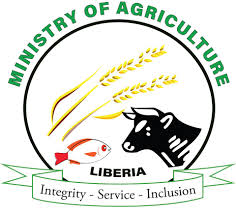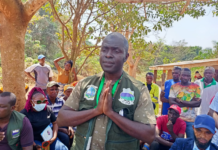The World Bank has approved US$ 10.5 million funding support to the Government of Liberia (GOL) through the Ministry of Agriculture (MoA) for its COVID-19 Food Security, Nutrition and Livelihood Plan.
Upon a recent request from the GOL, the funding was drawn from the Contingency Emergency Response Component (CERC) within the World Bank’s funded Smallholder Agriculture Transformation and Agribusiness Revitalization Project (STAR-P) which kicked off in 2019 and is directed and supervised by the MoA.
Liberia’s COVID-19 Food Security, Nutrition and Livelihood Plan –as formulated by the MoA in March –aims to mitigate Coronavirus’ threats and impacts on Liberia’s food security and livelihood; and targets vulnerable low income families and local farmers.
A release from quotes that the MoA, through the Program Management Unit (PMU), will manage the CERC funding with support from the STAR-P in partnership and collaboration with farmers’ groups, agro processors and cooperatives to support the plan’s implementation.
Eight components will be implemented over a three-month period and they include:
- Support to agricultural productive infrastructure through the construction of irrigation infrastructure, rehabilitation of tertiary roads that connect farmers to markets, and other forms of rural infrastructure.
- Support to input delivery networks. This will enhance support to agribusinesses from wholesalers to distributors and agro vets by assisting them working capital. Another aspect deals with support to organized distribution of seeds, fertilizers, and agro-chemicals to farmers in places where input markets are likely to face severe impacts.
- Support to the construction of warehouses for agricultural commodities. Following completion of these infrastructures, it will be offered to the private for management services
- Support assets building for small-scale food processor. Milling, drying and packaging of maize, cassava, fishery products and rice.
- Support the upgrading of sanitary services. Through supply of water and sanitation services to agro allied industries.
- Support block grants for communal infrastructure such as boreholes, micro-power generation, drainage channels among others.
- Support mechanized farming.
- Provide farmers grants. This component ensures support to on-farm irrigation equipment, procurement of equipment for poultry production, innovative solutions for small-scale preservation of food, biogas equipment for green management of agricultural waste, etc.
At the end of the project’s implementation, 100,000 metric tons of staple foods would be produced that will drop the country’s food import reliance by 15% and have a strategic food reserves for the first time in Liberia.
An estimated 100 small and growing processing businesses will be built, and 50 cooperatives and farming communities empowered.
About 5,000 jobs will be created and another 30,000 supported in agriculture and agro-allied industries.























